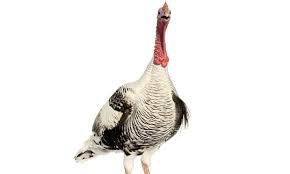Does Turkey Make You Sleepy?
Nah, it's everything you eat during Christmas makes you sleepy. It's just THAT time of year.
Isn't it?
🥱
Tryptophan is one of 20 naturally occurring amino acids—the building blocks of proteins. Because the body is unable to manufacture tryptophan on its own, it must be obtained from food protein. Turkey is a great source of this essential acid, but it is not unique: many meats and other protein products pack comparable amounts.
Tryptophan is used by the human body to make serotonin, a neurotransmitter. It has a somnolent effect on fruit flies, whose sleep is most likely equivalent to our slow-wave (non-REM) sleep, says neuroscientist Amita Sehgal of the University of Pennsylvania School of Medicine in Philadelphia. Other studies show that one function of serotonin is the promotion of slow-wave sleep in nonhuman mammals, she adds, and it may do the same for humans.
Thus, it is no wonder that turkey, which provides the raw material for the synthesis of sleep-related serotonin, is purported to have soporific power.
https://www.scientificamerican.com/article/fact-or-fiction-does-turkey-make-you-sleepy/
But wait, there is more:
But eating turkey does not translate to amplified serotonin production in the brain, says neuropharmacologist Richard Wurtman of the Massachusetts Institute of Technology's Department of Brain and Cognitive Sciences in Cambridge, Mass.
Turkey and other protein-rich foods contain many amino acids, and tryptophan is the scarcest among them, Wurtman says. After a turkey dinner, several amino acids circulate through the bloodstream. To get into the brain they must be shuttled across the blood–brain barrier by specialized transport proteins. Like passengers trying to board a crowded bus, amino acids compete for rides on these transporters. Not only does tryptophan have paltry representation among the passengers; it also competes with five other amino acids for the same transporter. Aced out by other amino acids, tryptophan thereby has a tough time hitching a ride to the brain.
Taken in isolation, tryptophan would increase brain serotonin, Wurtman says, but no food source contains tryptophan in the absence of other amino acids.
"Paradoxically, what probably makes people sleepy after Thanksgiving dinner is…dessert," he adds. "Eating carbohydrates increases brain serotonin in spite of the fact that there is no tryptophan in carbohydrates."
(Aha, another Old Wives Tale debunked, it ain't the turkey.)
Don't forget the beverages either. Thanksgiving feasts are often washed down with bubbling champagne, beer, wine or other spirits. Despite the latter's name, all have a lulling affect on the mind and body. So don't blame the turkey for your postprandial lethargy, instead give thanks for the abundance of drink and carbohydrate-rich, albeit slumber-inducing fare.
Now ya know!



Comments
Post a Comment